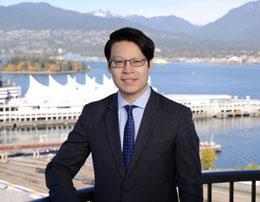Dear Minister: International students need clarity

Dear Honourable Minister Hussen:
In September 2017 I attended a luncheon to hear you address local business leaders and immigration lawyers on your views about Canadian immigration policy. I was encouraged to hear that you share the view that international students make great permanent residents, and that we should aim to provide better client service to immigrants.
My years of private legal practice have shown me that most immigrants are extremely hardworking and grateful for the opportunity to live in the country we call home. Most are not self-entitled and expect only to be treated fairly during the immigration process. At a minimum, this means having reasonable processing times and the benefit of a fully transparent system where applicants clearly understand whether they meet program requirements. Unfortunately, our current immigration laws are failing many international students.
Under current laws, international students can receive open work permits called “post-graduation work permits” (PGWPs) after graduation if they completed an “eligible” post-secondary program of study. PGWPs allow students to put their Canadian education and skills to work, and opens a pathway to permanent residence in the future. All educational programs at pubic post-secondary schools are PGWP eligible, but most programs at private post-secondary schools are not.
There is currently a lack of transparency about which schools and programs are PGWP eligible, resulting in confusion to both applicants and the immigration officers tasked with issuing PGWPs. It is unacceptable for different immigration officers to simultaneously grant and refuse PGWPs to applicants who have completed the same program of study, but that is the current reality that many international students face. Many international students are also unaware that they can only ever been granted one PGWP, even if they go on to complete further studies.
If you speak to international students you will hear the same stories time and again. I have been approached by clients who honestly and reasonably believed they were entitled to a PGWP because their peers received one, albeit in error. Some international students incorrectly believe that their school and program of study must be PGWP eligible because the school is on the list of “designated learning institutions”. On the other hand, I have consulted with clients who know they should not receive PGWPs but want to “roll the dice” hoping to benefit from inconsistent processing. Some even believe that they might get a better result applying for a PGWP at the border rather than in Canada because border officers may be less familiar with the relevant immigration rules.
These stories are symptomatic of a flawed international students program that lacks transparency and consistency in PGWP processing. They also give rise to potentially serious legal ramifications. Consider the following issues: Will Canadian work experience earned under an erroneously issued PGWP be recognized for permanent residence? Can a second PGWP be issued if the first one was erroneously issued? These are serious and legitimate questions, among others, that need answering.
Good client service requires Immigration, Refugees and Citizenship Canada (“IRCC”) to implement clear rules and guidelines about which schools and programs of study are PGWP eligible. We find this level of clarity in other areas of immigration law and we should expect the same for international students. For instance, if you are asked to complete a medical examination or asked to have your foreign educational credentials assessed for immigration purposes you would not need to guess whether you are going to the right place for these services because IRCC publishes on its website a list of pre-approved doctors and pre-approved organizations for credential assessments. Similarly, at the provincial level, the British Columbia Provincial Nominee Program offers a pathway to permanent residence for international post-graduate students completing certain graduate degrees in the province, a complete list of which is publicly listed on their website.
There may be many logistical challenges to implementing a continuously updated list of PGWP eligible schools and programs across the country. There may also be costs involved to research and implement other viable solutions such as improving internal training for immigration officers and external messaging to international students, but leaving the system in its current state is unacceptable. My hope is that this letter will encourage much needed dialogue on measures to improve on the current system, and shed some light on an ongoing and pervasive problem within the international student community.
As an immigration lawyer, I am keenly aware that the immigration journey is a deeply personal one. No international student or their families should ever be refused a PGWP and asked to leave Canada because it was not clear to them whether they were eligible for a PGWP in the first place. We can and, indeed, must do better. Good client service begins when we remind ourselves that behind each immigration application is a real individual or family who have often made great sacrifices to make a new life in Canada.
Sincerely,
Victor Ing
Barrister and Solicitor
Victor Ing is a lawyer of Sas & Ing Immigration Law Centre. He provides a full range of immigration services.
For more information go to www.canadian-visa-lawyer.com or email victor@canadian-visa-lawyer.com.









